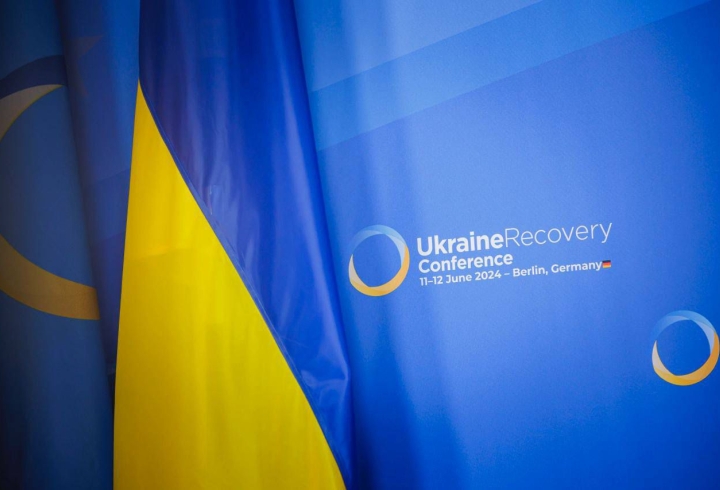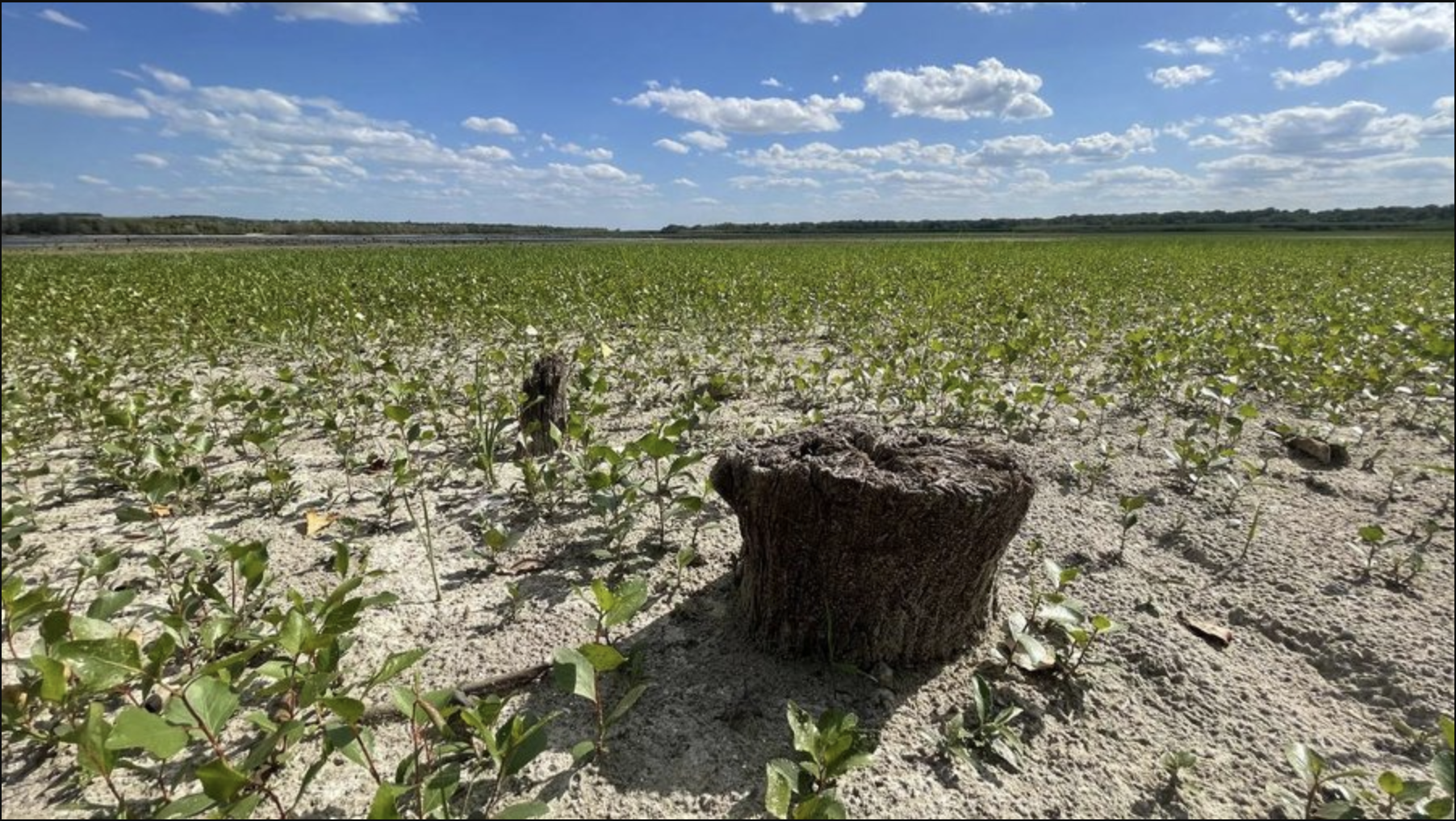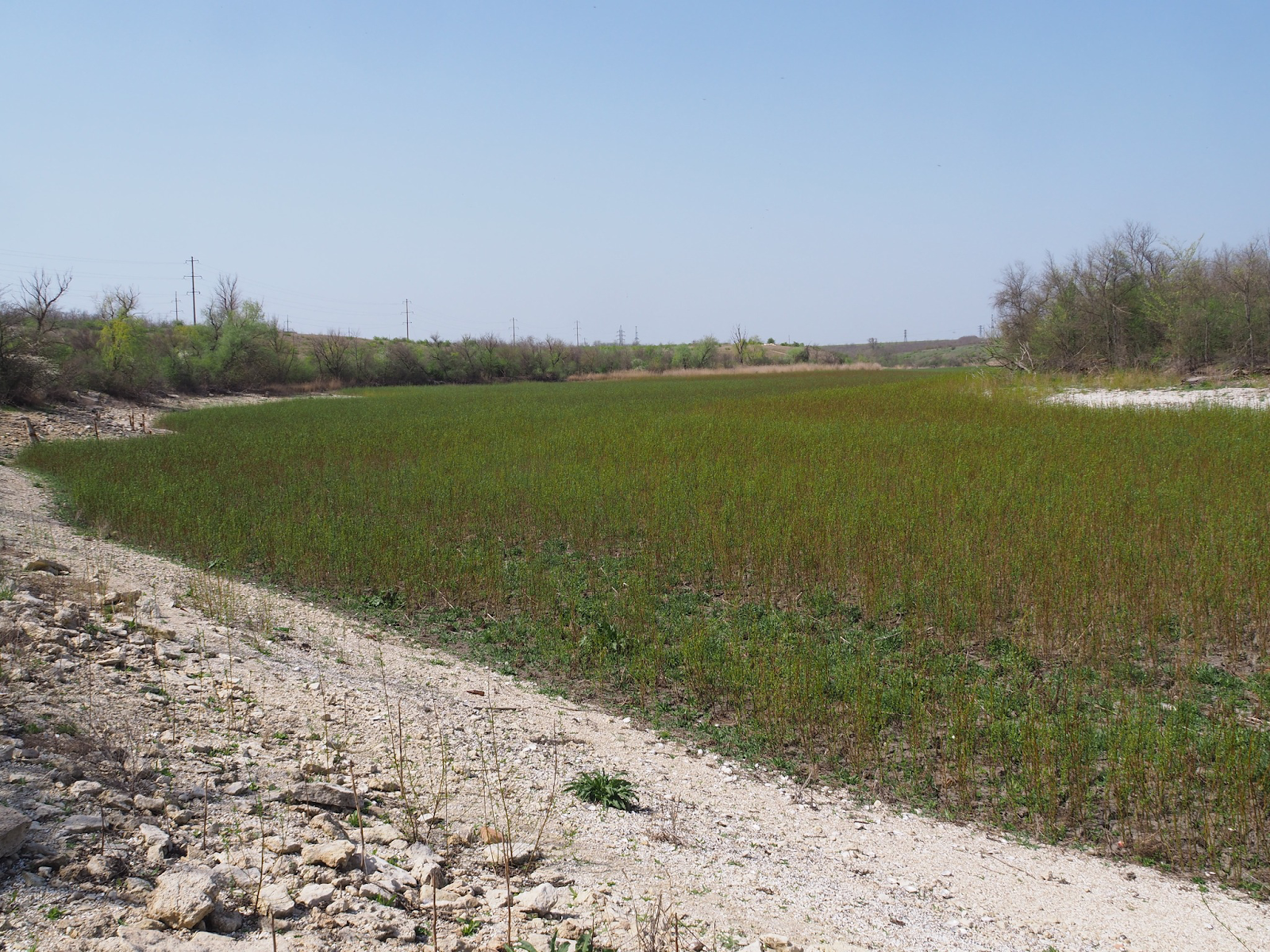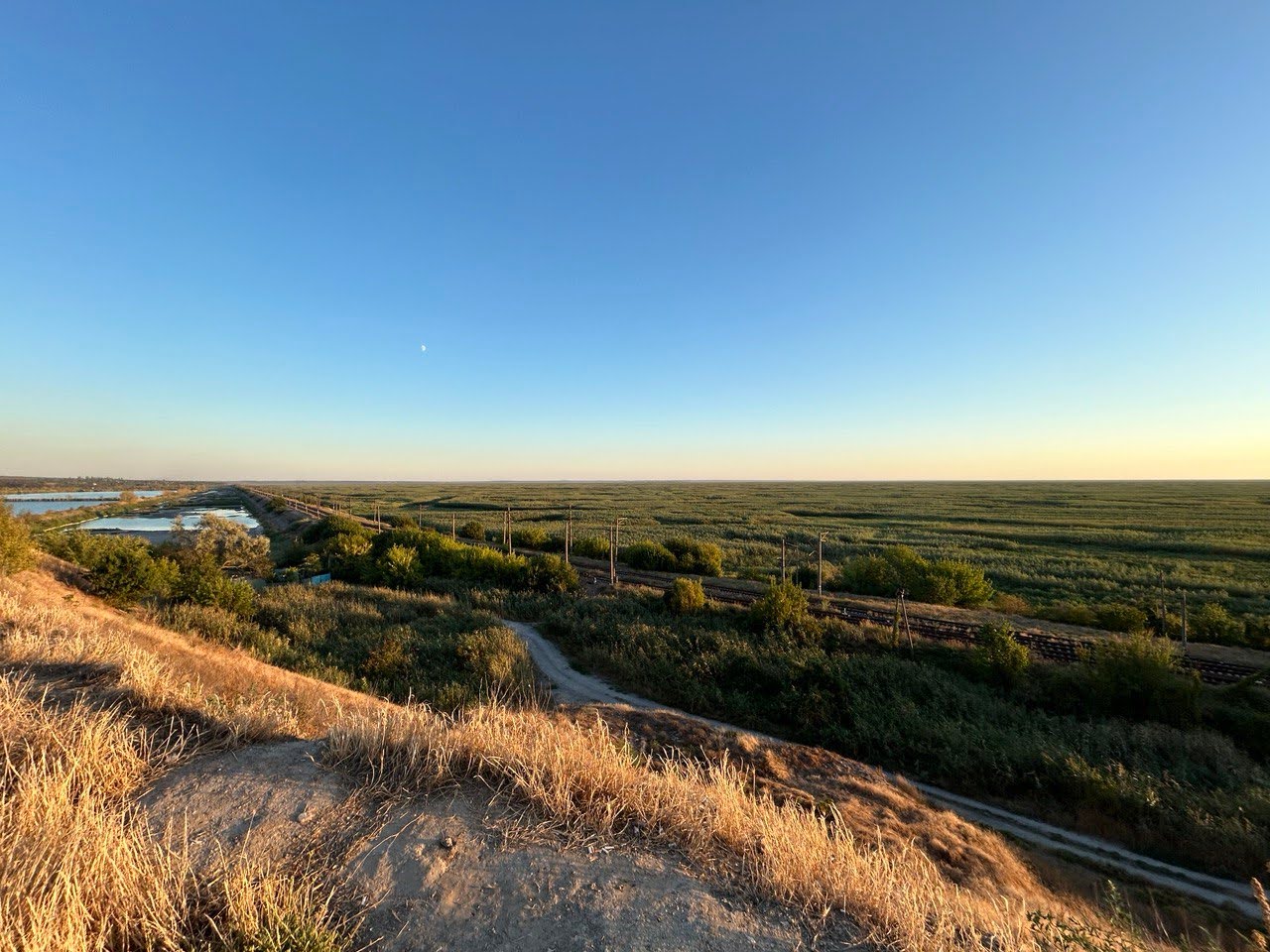Viktoria Hubareva
Ukrainian experts who attended URC 2024 share their views on the protection of conservation areas, the integration of reforms, green recovery and energy sustainability.
On June 11-12, European and world leaders, international organizations and representatives of civil society converged on Berlin for the Ukraine Recovery Conference, devoted to discussing solutions for Ukraine’s post-war transformation.
Held under the slogan “United for defense. United for recovery. Stronger together,” this year’s conference was the third summit dedicated to the recovery of Ukraine, following the meetings in Lugano in 2022 and London in 2023. It is a continuation of an event first held in London in 2017 as the Ukraine Reform Conference.
Read more:
The Ukraine Recovery Conference 2024 was focused on four thematic tracks: security issues, Ukraine’s accession to the EU, the roles of business, human resources and local government bodies in Ukraine’s future recovery, as well as synergy between these areas. The challenge of restoring the country’s power network — one of the most pressing issues to be resolved in Ukraine — was also raised at the event.
The UWEC Work Group spoke to members of leading Ukrainian public organizations to find out how the conference highlighted green and sustainability issues in the context of Ukraine’s reconstruction, and how the proposed recovery strategies address climate change issues.
URC and green recovery: What was said?
“The priority needs that were voiced at the conference were the call for partners to support the provision of air defense, investments and energy sustainability. This somewhat sidelined the relevance of green recovery and sustainable development,” said Maria Lukyanova, a green investment specialist at Ecoaction and a coordinator of the CEE Bankwatch network in Ukraine, who attended the conference.
According to Lukyanova, much more could have been said about environmental issues and principles for sustainable development. However, she reported that discussion did touch upon aspects relating to the introduction of green principles in the restoration of cities, green energy and environmental restoration.
“There were separate discussions on this topic in the panels on the specified thematic tracks. These included: What will a modern Ukrainian city look like? Sustainable urban development, energy efficiency and strengthening the resilience of municipal infrastructure (the local track); energy security and green recovery: the contribution of business to ensuring reliable and sustainable energy supply in Ukraine (the business track); green recovery and the European Green Deal for Ukraine: conditions for environmentally friendly recovery and growth (the European integration track); green transition as a business case (the European integration track), as well as how non-governmental organizations can contribute to a sustainable, green recovery for Ukraine (the Recovery Forum).”
EU integration for Ukraine and the impact of European reforms on environmental protection in Ukraine; protecting natural sites
“Unfortunately, the protection and restoration of nature reserves was barely discussed, only in isolated sessions. Primarily those that weren’t in the official part [of the conference program],” said Maria Belkina (Dyachuk), deputy director of the Ukrainian environmental organization Ecoaction and the head of its agricultural department.
“Even the relevant ministry considers the conservation of biodiversity only in the context of the forestry industry, in terms of timber extraction or the protection and rehabilitation of animals. So the restoration of natural areas and the protection of biodiversity were barely considered and weren’t integrated into sectoral discussions, although this is very important in the context of business development and compliance with environmental requirements, so that there are no cases like with the Svydovets mountain range. One of the main recommendations for the next year is therefore to highlight the separate dimension of sustainability [as an area for discussion], where the issue of restoration of natural areas won’t get lost among investment projects,” she explained.
Ukraine has already fulfilled all the necessary obligations in order to open discussions on joining the EU, and on June 14, the EU’s Council of Ministers agreed to formally begin accession negotiations with Ukraine and Moldova.
Environmental experts believe that Ukraine will benefit significantly from integration with EU practices and policies, such as the Green Deal and the EU Forest Strategy for 2030, which define forests as natural allies in fighting and adapting to climate change, helping Europe achieve climate neutrality by 2050.
This was highlighted by Valeria Kolomiets, director of Ukraine restoration projects at WWF Ukraine, who also attended URC 2024.
“Regarding the European integration track, the Ukrainian environmental ministry has indeed conducted internal monitoring in the field of environmental protection and biodiversity. Several weeks ago, consultations on the negotiation process were held in Brussels, with the aim of determining when and what obligations will be fulfilled,” she said.
“Regarding the Emerald Network, for example, there are public organizations that have already begun work on preparing the introduction of the relevant directive into our legislation. But, to quote one of the URC speakers [Estonian Prime Minister Kaja Kalas], we shouldn’t forget that in fact the negotiation process on joining the EU is not exactly a process of ‘negotiations’. It is a clearly defined and regulated process that places many demands on our country to introduce certain reforms and comply with certain rules recognized in the EU, especially regarding environmental protection.
“So it’s not going to work if we negotiate with one hand while with the other we adopt legislative initiatives that directly violate EU legislation (such as bill #9516, which proposes the abolition of restrictions on sanitary logging), as well as implementing a project that destroys Emerald Network sites (an example of the fight for the Svydovets mountain range). Furthermore, such contradictions may directly hinder our rapid accession to the EU,” said Kolomiets.

The Svydovets nature reserve is a nature conservation area in the Ukrainian Carpathians, which is part of the Carpathian Biosphere Reserve. its ecological significance and diversity of flora and fauna, Svydovets is included in the Emerald Network of Europe — areas of special conservation importance, important for the preservation of biodiversity.
Restoring Ukraine’s battered energy system is a key priority
Russia is carrying out a deliberate campaign to destroy Ukraine’s power network — 80% of the thermal energy system and a third of the hydroelectric power system, which could provide 9 GW of capacity, has already been destroyed. This is half of the total capacity required by the country in winter. Ukraine and its Western partners are therefore faced with the challenge of immediately strengthening energy security: preserving the existing generation capacity and restoring what has been destroyed.
With this in mind, Ukraine’s deputy economy minister Oleksiy Sobolev has presented the draft National Energy and Climate Plan (NECP). In addition, Ukraine has concluded 12 cooperation agreements with financial institutions and energy companies. It also became known that Ukraine will receive 400,000 euros from Estonia, 138 million euros from the Netherlands, $109 million in grant funding and $824 million from the United States to support the Ukrainian energy infrastructure.
Valeria Kolomiets from WWF Ukraine noted that this year’s conference tackled the issue of the country’s green recovery and green transition in the context of energy for the first time.
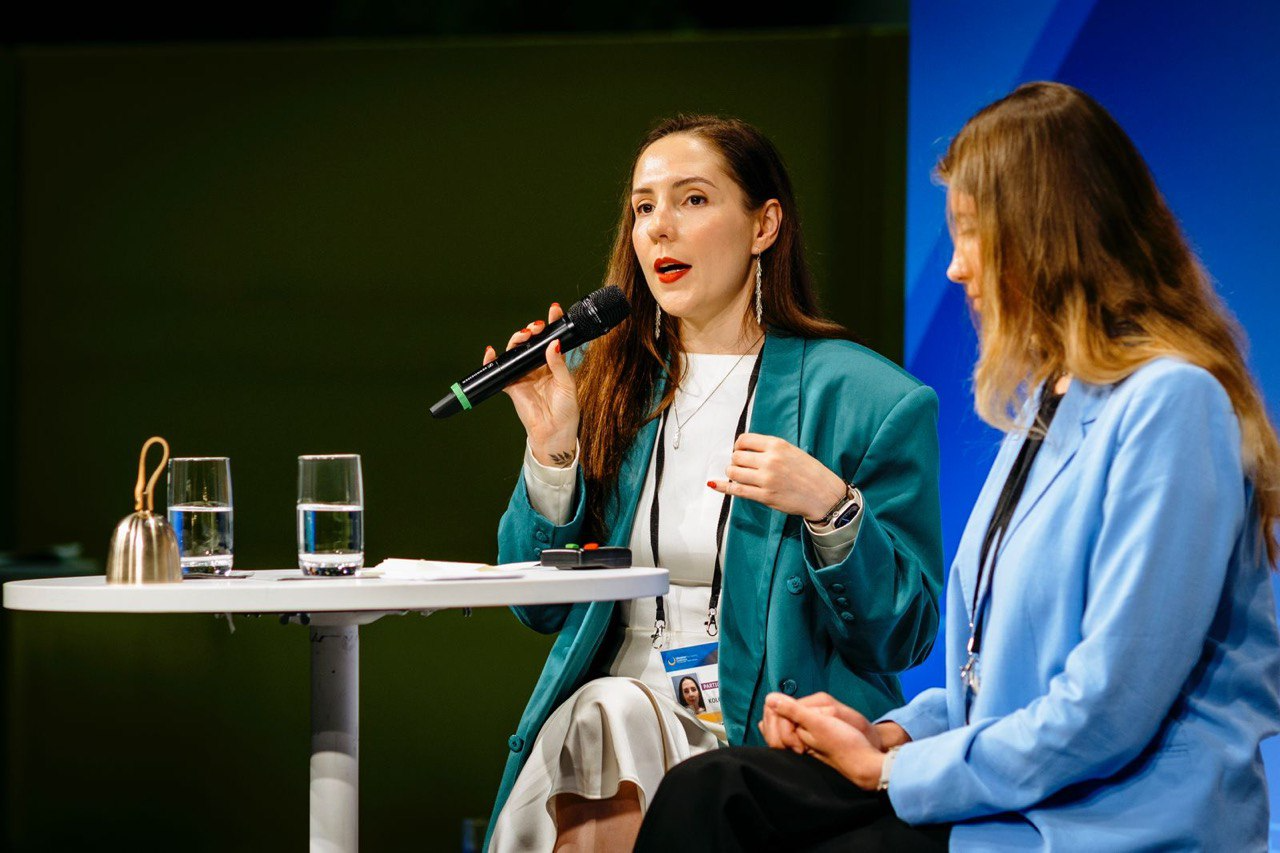
“Indeed, it is clear to everyone that adaptation to climate change is part of these cross-cutting processes. Given what was announced during the panel discussions, the priority task for the state in this area today is the introduction of a decentralized system based on renewable energy sources, along with increasing energy efficiency. This is understandable, since our energy system has been suffering as a result of Russian military aggression for several years now, and therefore, in attempting to solve this problem, it is important for us not to return to old methods that pollute the environment, but to use sustainable and nature-friendly approaches,” said Kolomiets.
During his speech at the conference, Ukrainian President Volodymyr Zelensky underlined that Ukraine must do everything to deprive Putin of the use of blackouts as a weapon. Today, given the massive destruction, the energy sector is a large market for creating a new energy base in the country. He also noted that Ukraine urgently needs to find a fast and inexpensive way to restore its energy facilities to ensure they will be ready in time for winter, and has asked Ukraine’s Western partners to provide equipment from mothballed thermal power plants in the EU.
“The solutions announced at the conference to ensure energy sustainability included, in particular, the development of distributed generation, energy saving and the use of gas installations as an immediate solution to overcome the crisis,” added Maria Lukyanova. “The transition to renewable energy sources was also mentioned as a plan for the next two-three years with additional investments of 10 billion euros. Risk reduction, investment guarantees, and attracting private capital should be the main financial instruments here. At the same time, it is important to ensure free pricing and the integration of renewable energy into the electricity market.”
Lukyanova pointed out that Ukraine has a good example of ensuring the sustainability of energy systems at local community level: the central city of Zhytomyr, which has been working on the introduction of renewable energy sources in the municipal sphere for a long time now.
“As a result, its residents today do not suffer from power outages. Therefore, it is critical for municipalities to open access for small communities to the resources of large financial institutions, such as the European Investment Bank (EIB) and the European Bank for Reconstruction and Development (EBRD), to loans in national currency, to technical support for project preparation and grants. In view of the significant destruction of energy infrastructure and the leading role of communities in the recovery processes, public organizations have renewed their call for support for municipalities to switch to renewable energy sources to ensure their resilience.”
According to Lukyanova, the possibilities of increasing nuclear energy in Ukraine were also discussed at the conference. It was announced that up to 1 GW of maneuverable generation would be increased by 2024:
“This year, ambitious plans have been announced to build 1 GW of maneuverable generation by the end of 2024, which is provoking debate. The intensification of work on completing the construction of nuclear power units looks pessimistic: first, it’s an expensive indulgence for which Ukraine needs significant financial resources (which it lacks); second, it’s a long process, and given the destruction of half of its generating capacity, Ukrainians need quick solutions for the coming winter; and, most importantly, nuclear power is not what Ukraine should be striving for in the context of the Green Deal.”
Ecoaction is currently running a campaign on nuclear power calling for Ukraine to move away from an energy source that is underpriced, does not include the cost of decommissioning and disposal of radioactive waste, and increases Ukraine’s dependence on Russia for resources.
What was said at URC 2024 about sustainable recovery?
Ukraine formally joined the New Leipzig Charter for urban development as part of a topical panel during the conference titled “What will modern Ukrainian cities look like?”
The New Leipzig Charter provides a political framework for the presentation and implementation of European and global agreements on the urban scale. Its aim is to protect and improve the quality of life in all European cities and their functional zones, to make cities inclusive, safe and sustainable, and also ensure that they are in line with New Urbanism, the Paris Agreement and the European Commission’s Green Strategy.
In addition, the Ukrainian Ministry of Education and Science signed cooperation agreements with Belgium and Germany, under which these countries will allocate more than 41 million euros for the restoration of educational institutions and the development of vocational education in Ukraine. So many EU assistance initiatives are aimed not only at restoring critical energy infrastructure, but also at rebuilding cities in general.
“I cannot say that the entire conference was permeated with a clear vision of the principle of ‘let’s build back better’ enshrined in the Ukraine Facility but there’s still an attempt to find a balance between today’s humanitarian needs and solutions to long-term consequences. That is, the restoration of housing stock and infrastructure facilities should still take into account the principles of energy efficiency, refusal to use asbestos building materials, and so on,” says Valeria Kolomiets.
Meanwhile, Ukrainian public organizations had the opportunity to offer their own visions for the country’s green recovery, in which they will actively cooperate with the authorities.
“During one of the presentations at the Recovery Forum (an event held as part of the Conference), together with Natalia Kholodova from [the Ukrainian environmental organization] Ecoclub, we shared examples of how public organizations are already cooperating with communities and the state to implement a sustainable and effective restoration process,” explains Kolomiets. “Natalia talked about how their organization cooperates with communities and implements energy-efficiency projects, and I shared the experience of WWF Ukraine’s cooperation with the Ministry of Environmental Protection and the Ministry of Infrastructure on the greening of road infrastructure.”
Maria Lukyanova added: “The representation of civil society organizations working on green recovery and sustainable development was more substantive than at previous recovery conferences. A joint statement on green recovery was prepared by non-governmental organizations specifically for the Berlin Conference.”
Green recovery platform for Ukraine at URC 2024 and the Kakhovka reservoir
One of the panel discussions organized as part of URC 2024 was notable for the announcement of the creation of a Platform for the Green Recovery of Ukraine. This aims to bring together representatives of government authorities, public organizations, communities and businesses, as well as scientists and other interested participants, for the joint preparation of decisions. It was a positive sign that immediately after the launch of the platform, a discussion began at the conference itself about the most high-profile and large-scale nature restoration project in Ukraine — the former Kakhovka Reservoir.
“On behalf of WWF Ukraine I proposed to bring the issues of the Kakhovka Reservoir for discussion by this platform,” said Valeria Kolomiets. “In particular, [we should] discuss which of the region’s specific needs were satisfied by this system (after all, we must recognize that “to build or not to build” is a question concerning not only the environment) and develop alternative options for meeting these needs that can be considered in the future by the state authorities. The Kakhovka Reservoir is an example of to what extent the State is ready to implement nature- and human-friendly solutions in the spirit of “building back better,” or will most of our reconstruction still attempt to recreate Soviet infrastructure, which is technically and morally outdated?” she said.
Based on the feedback of those experts attending, the Ukrainians were much better prepared for URC 2024 than for last year’s event: the arguments sounded more specific. However, given the circumstances, attention by necessity focused on continuing support for Ukraine and covering urgent needs related to airspace protection and energy. However, there were also positive changes: participants of the conference began talking about green urban recovery, as well as the fact that Ukraine is one step closer to joining the EU. This means that it will implement environmental reforms in line with the Green Deal, which will not allow natural areas to be destroyed.
Translated by Alastair Gill
Main image source: Mariupol Reborn

